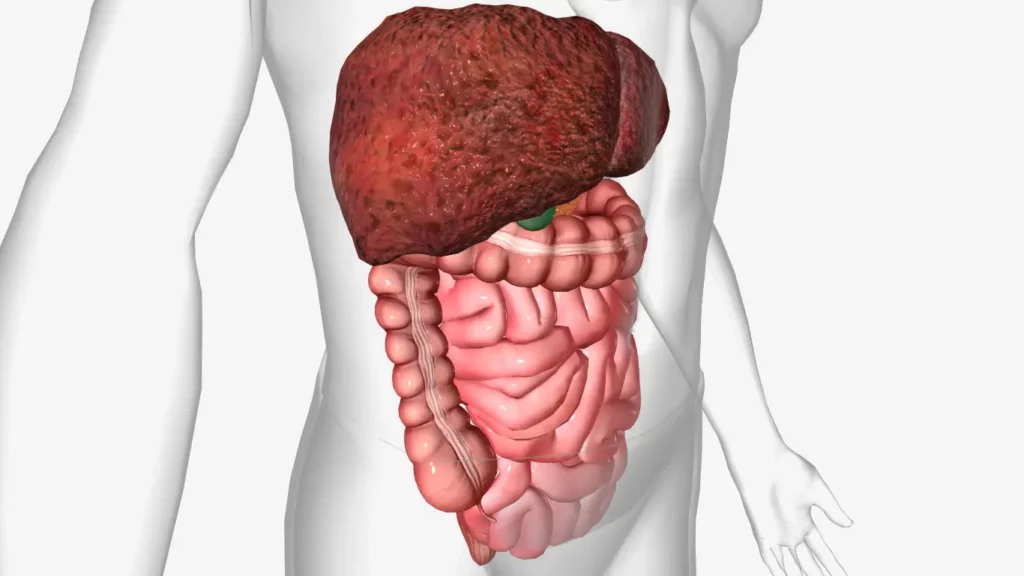How to Control Fatty Liver: Effective Tips for Control and Prevention

Fatty liver, also known as hepatic steatosis, is a common condition that occurs when excess fat accumulates in the liver. It is often associated with poor lifestyle choices and can lead to serious health issues if left untreated. In this article, we will explore what fatty liver is, its causes, symptoms and most importantly, how to control and manage it effectively.
Understanding Fatty Liver
Fatty liver is a medical condition characterized by the buildup of fat in liver cells. There are two main types of fatty liver disease:
1. Non-Alcoholic Fatty Liver Disease (NAFLD)
2. Alcoholic Fatty Liver Disease (AFLD)
What Causes Fatty Liver?
Fatty liver can be caused by various factors, and understanding the root causes is crucial for effective management:
1. Lifestyle Factors
Poor Diet: Consuming a diet high in saturated fats, sugars, and processed foods can lead to the accumulation of fat in the liver. These unhealthy dietary choices contribute significantly to the development of fatty liver.
Lack of Physical Activity: Sedentary lifestyles and a lack of regular physical activity can hinder the body’s ability to metabolize fats effectively. This can result in fat buildup in the liver over time.
Obesity: Being overweight or obese is a major risk factor for fatty liver disease. Excess body fat, especially around the abdominal area, can increase the likelihood of developing fatty liver.
Read More: Which Fruit Is Good for Your Liver Health? The Ultimate Fruit Guide
2. Medical Conditions
Type 2 Diabetes: People with type 2 diabetes are at a higher risk of developing fatty liver. Insulin resistance, which is common in type 2 diabetes, can lead to increased fat accumulation in the liver.
High Blood Pressure: Hypertension or high blood pressure can also contribute to the development of fatty liver. It is often associated with other metabolic conditions that increase the risk.
3. Medications
Some medications, such as corticosteroids, tamoxifen, and antiretroviral drugs, have been linked to the development of fatty liver. It’s important to consult with a healthcare provider if you suspect your medications may be a contributing factor.
Read Also: How to Check Liver Function at Home in Simple Steps
4. Genetics
Genetic Predisposition: Genetics can play a role in an individual’s susceptibility to fatty liver disease. Some people may have a genetic predisposition that makes them more prone to this condition.
How to Control Fatty Liver: Recognizing the Symptoms
Fatty liver often goes unnoticed because it might not present any symptoms in its early stages. However, as the condition progresses, various signs may become apparent:
⇒ Common Symptoms
Fatigue: One of the earliest signs of fatty liver is unexplained fatigue or a general feeling of tiredness. This fatigue can be persistent and may not improve with rest.
Abdominal Discomfort: Some individuals with fatty liver may experience discomfort or pain in the upper right side of the abdomen. This discomfort is often described as a dull ache or a feeling of fullness.
Jaundice: In more advanced stages, fatty liver can lead to jaundice, characterized by yellowing of the skin and the whites of the eyes. This occurs when the liver’s ability to process bilirubin is compromised.
Read More: How to Check Liver Function at Home in Simple Steps
⇒ Advanced Symptoms
Liver Inflammation: As fatty liver progresses, it can lead to liver inflammation, a condition known as non-alcoholic steatohepatitis (NASH). Symptoms of liver inflammation may include abdominal swelling, discomfort, and an enlarged liver.
Complications like Cirrhosis: In severe cases, untreated fatty liver can progress to cirrhosis, a condition where liver tissue becomes scarred and damaged. Symptoms of cirrhosis include fatigue, weakness, fluid retention, and easy bruising.
Read More: Top 10 Signs You Should Never Ignore: Where Liver Pain Strikes
How to Control Fatty Liver
Managing and controlling fatty liver involves making significant lifestyle changes. Here are some effective strategies to help you take control of your liver health:
Healthy Eating
Consume a Balanced Diet: A well-balanced diet that includes plenty of fruits, vegetables, whole grains, and lean proteins is essential. Opt for foods rich in antioxidants and nutrients to support liver health.
Limit Sugar and Processed Foods: Reduce your consumption of sugary foods and beverages, as well as processed and fried items. Excessive sugar intake can contribute to fat accumulation in the liver.
Regular Exercise
Engage in Physical Activity: Incorporate regular physical activity into your routine. Aim for at least 150 minutes of moderate-intensity exercise per week. Exercise helps improve insulin sensitivity and aids in the metabolism of fats.
Weight Management
Lose Excess Weight: If you are overweight or obese, losing weight can significantly reduce the fat content in your liver. Gradual weight loss through a combination of diet and exercise is recommended.
Avoid Alcohol
Refrain from Excessive Alcohol Consumption: If you have alcoholic fatty liver disease (AFLD), it’s crucial to abstain from alcohol completely. Even small amounts of alcohol can worsen the condition.
Stay Hydrated
Drink Plenty of Water: Staying hydrated is essential for overall health, including liver function. Adequate water intake supports the liver’s ability to process toxins and fats.
By adopting these lifestyle changes and working closely with your healthcare provider, you can effectively control and manage fatty liver. Remember that seeking medical advice is essential for personalized guidance and treatment options, as the severity of fatty liver can vary from person to person. Proactive steps to address this condition can significantly reduce the risk of liver-related complications and improve your overall well-being.
Read Also: 10 Early Symptoms of Liver Disease in Woman
Conclusion
Fatty liver is a prevalent condition that can lead to serious health complications if not addressed. By making lifestyle changes, such as adopting a healthy diet, staying active, and monitoring your health, you can effectively control and manage fatty liver. Remember that seeking medical advice is essential for personalized guidance and treatment options.

